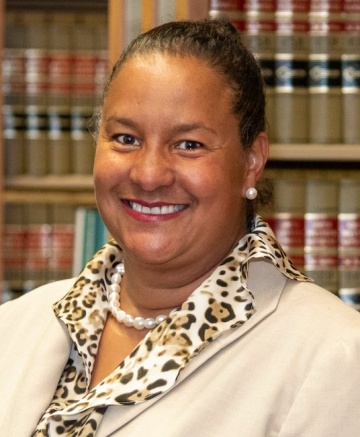Columbia College | Columbia University in the City of New York
Tulsa Law Professor Felt Like a “Country Mouse” in NYC

Bowman is spearheading a series of events on May 21 to mark the 100th anniversary of the Tulsa Race massacre, one of the country’s worst episodes of anti-Black violence. The series will include panels featuring law and history academics, an art installation, a poetry reading and a roundtable regarding Black Wall Street businesses.
What were you like when you arrived at Columbia?
I grew up in a town of 10,000 in northern New Mexico, so I was a country mouse excited about moving to the big city. I really wanted to get out of that town and see the world. I would often listen to that song “My Little Town,” by Simon & Garfunkel. When I got to New York I would walk down the sidewalk and smile at people, because that is what small-town people do; I remember people looking at me oddly, wondering why I was being friendly. It took me a while to get the hang of not making eye contact with every single person whom I met. I lived in Bonn, Germany, for a year before Columbia, so I thought I was very urbane and hip. But New York made Bonn seem small.
What do you remember about your first-year living situation?
I don’t remember very much, but I have been informed by reliable sources that I resided in John Jay. I had a small single room on the seventh floor. Women had recently been admitted to the College, and being in a coed dorm was fun and interesting.
There were a lot of protests that year, almost all of which I took part in. I was stressed out and upset; my mother came to visit to keep me focused during exams, and brought me a lot of chocolate. I learned about jazz in my first year by listening to public radio — I remember specifically listening to Astrud Gilberto, Stan Getz and “The Quiet Storm” on WBLS.
What Core class or experience do you most remember, and why?
I vividly remember my Literature Humanities class; I enjoyed the readings a lot. That was also a time when we discussed “diversifying” the Core with readings by women and people of color. I always laugh when I think how hard we worked to expand students’ minds about what a “classic” piece of literature is, and it surprises me also how successful we were with that movement. I also loved Music Hum. I enjoyed learning the differences between salsa, bachata and merengue, and I still frequently listen to much of the music my professor exposed me to.
I took several classes with Professor Eric Foner ’63, GSAS’69, who had a huge influence on me. In my office I have a copy of All God’s Dangers: The Life of Nate Shaw, by Theodore Rosengarten, which Foner assigned to me. I also have a signed copy of Foner’s book Reconstruction: America’s Unfinished Revolution, 1863–1877. We have corresponded over several years via handwritten letters, and more recently, email. Foner spoke at the University of Tulsa College of Law in 2019, and I was grateful that we were able to have dinner and reconnect.
Did you have a favorite spot on campus, and what did you like about it?
There was a beautiful place upstairs in Butler Library, a niche with dark wood where you could sit. It could have been built in the late 1700s.
What, if anything, about your College experience would you do over?
I had a very positive experience at the College. I remember, with quite a bit of pride, being taken to a police station in Harlem and being held for several hours after a protest where we occupied Hamilton Hall. People criticized the protesters, but I honestly learned a lot of soft skills, social skills and resilience from those experiences.
What do I wish I could do over? I wish I had studied harder, gone to every class and just been more focused. I wish I had drunk less Rolling Rock beer.
I was passionate, sincere, motivated and committed, but I am sure that many of my professors, wish I would have toned it down a few notches. I remember, with sorrow, a student from Louisiana putting up a White Power sign. I now have a lot more emotional tools to deal with that situation, and also more compassion and patience. If I had it to live that moment over again, I would have spoken with that student about how they were feeling and what they were trying to convey. Now that I am a teacher, I would have used the experience as an opportunity to have an important conversation.
More “Take Five”
- 1 of 32
- ›

